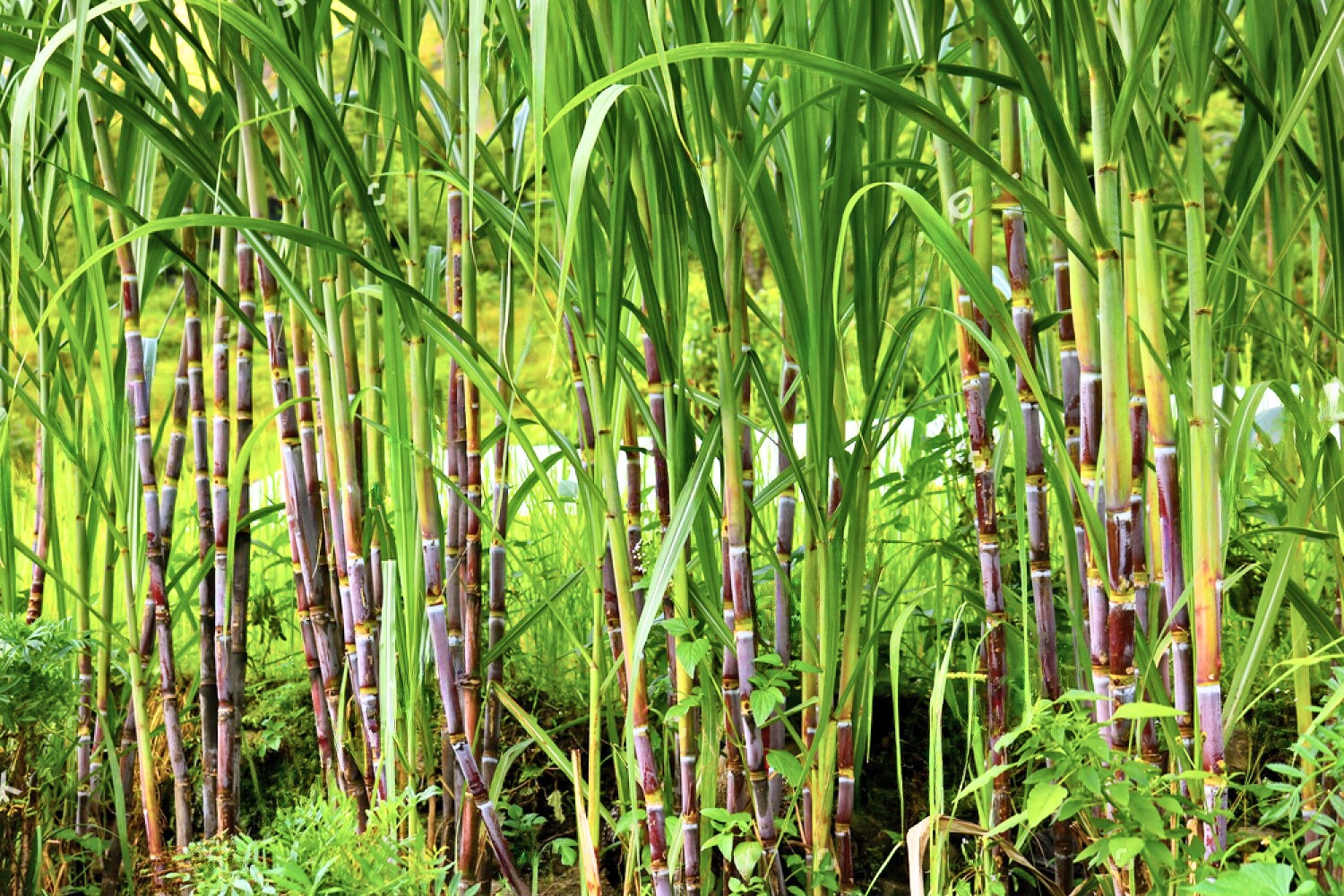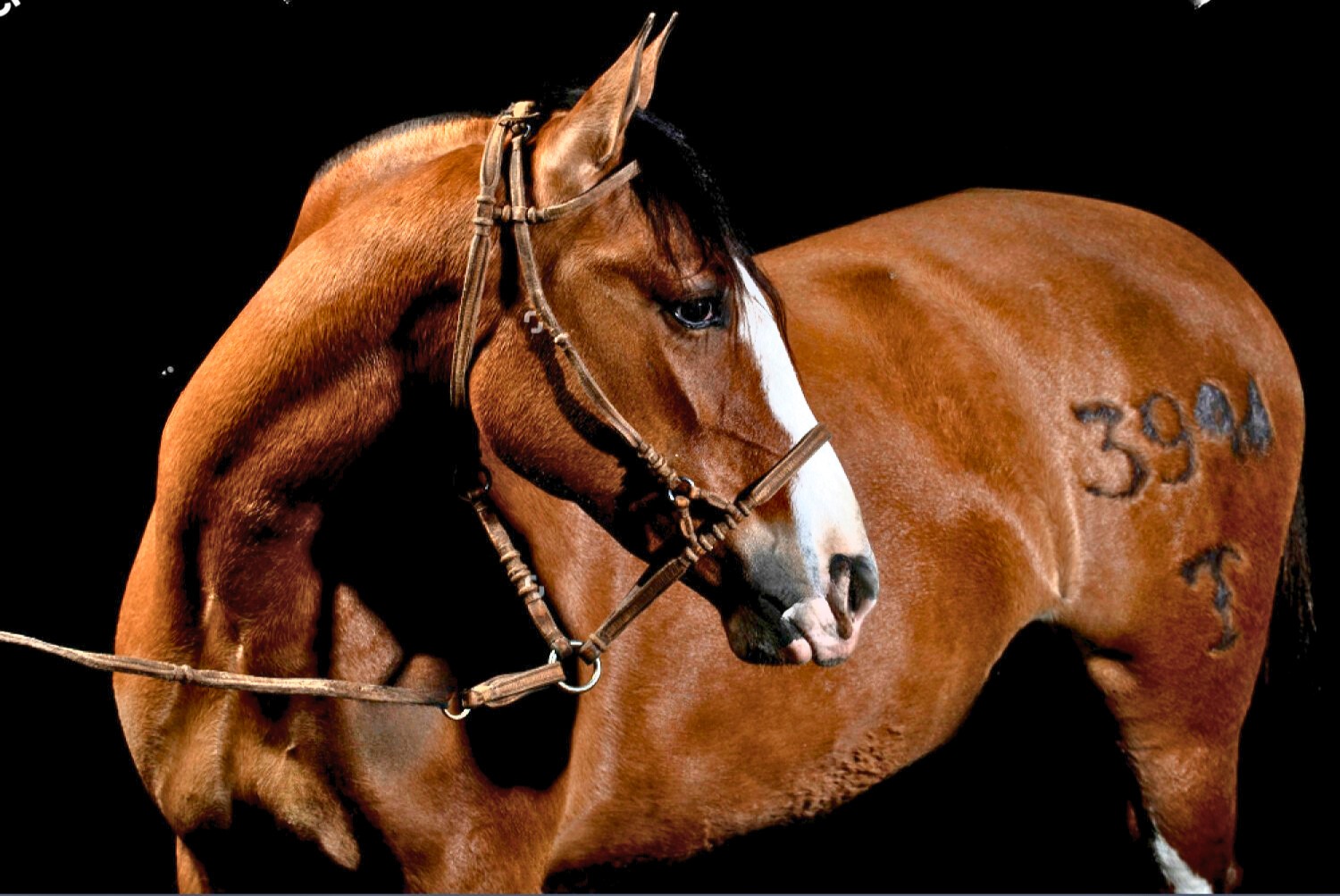The rumRum, the emblematic drink of the Caribbean, is not just a local specialty, but a symbol of a rich and complex cultural heritage. This article invites you to explore the fascinating path from sugar cane to rum, while highlighting its cultural impact through the ages. We’ll look at the history of sugar cane, the rum production process, the different types, and its cultural and economic importance in the Caribbean.
History of sugar cane
The origin of sugar cane
Sugar cane, originally from New Guinea, was introduced to the Caribbean by European settlers in the 16th century. The crop quickly caught on, thanks to the growing demand for sugar in Europe. Settlers began to establish plantations on the islands, which led to an exponential increase in sugar production.
Slavery and its impact
Sugar production was labor-intensive, leading to the massive importation of African slaves. This dark period in history had a profound impact on Caribbean culture and society. Slaves were forced to work under extremely difficult conditions on the plantations, creating social tensions that persist to this day.
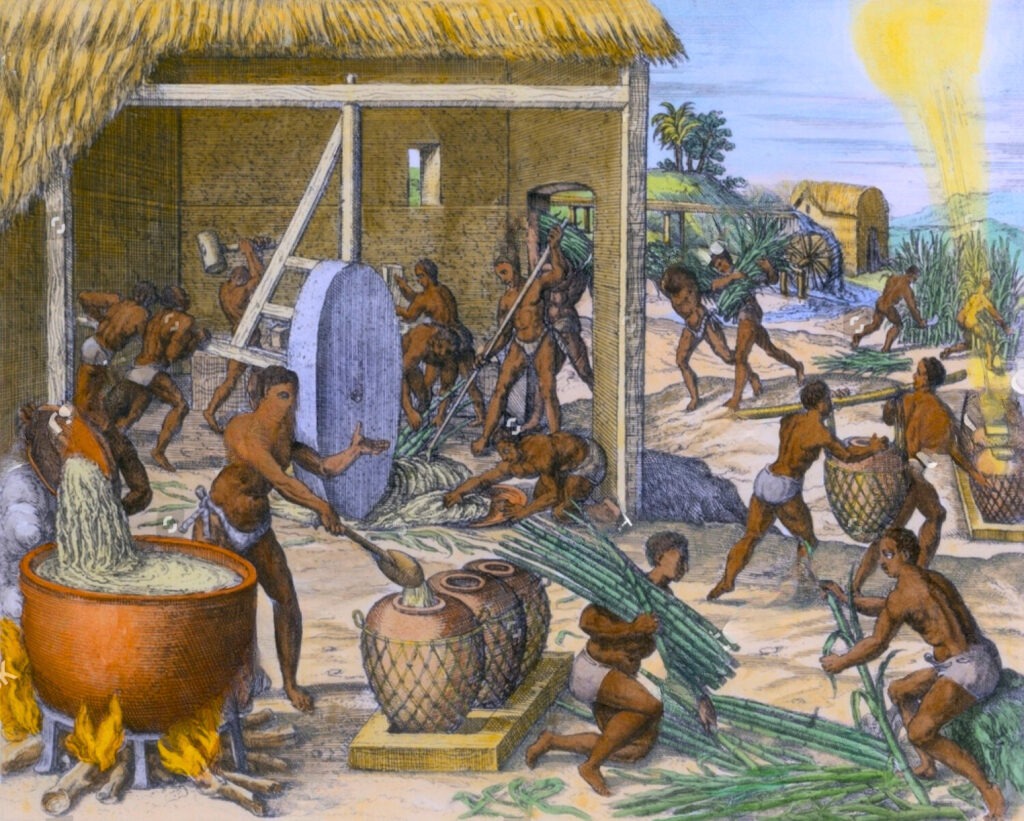
Plantation evolution
Over the centuries, sugarcane plantations have multiplied and evolved. Cultivation and production techniques were perfected, enabling a significant increase in yields. However, this prosperity was often built on the backs of local populations and slaves. In the 19th century, with the abolition of slavery, plantations had to adapt to new economic and social realities.
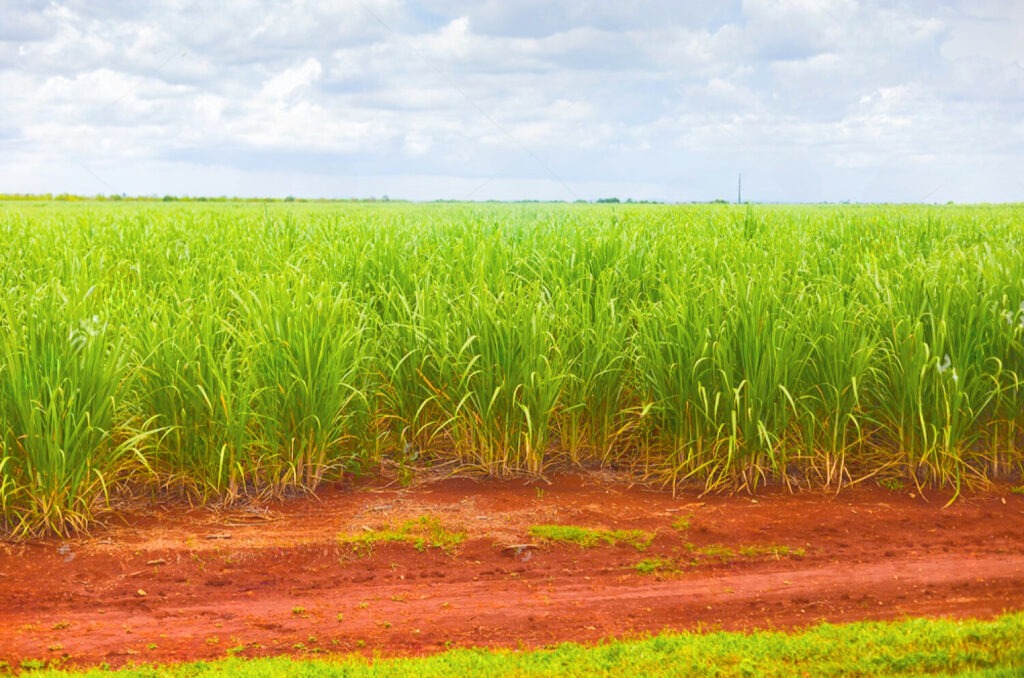
From sugar cane to rum
The production process
The transformation of sugar cane into rum is a complex process that begins with the harvesting of the cane, followed by the extraction of the juice. This juice is then fermented and distilled.
Sugar cane harvesting
Harvesting sugar cane is a crucial stage. The canes are cut by hand or by machine, then transported to the processing plants. This stage is generally carried out during the dry season, when sugar levels are at their highest.
Juice extraction
Once the cane has been harvested, it is crushed to extract the juice. This juice is rich in sugars and forms the basis of our production.
Fermentation
Fermentation is a crucial stage in the production process. Yeast transforms sugar into alcohol, creating a richly flavored blend. The duration of fermentation can vary, directly influencing the final taste.
Distillation
Distillation separates the alcohol from the other components of the juice. Two main methods are used: pot still distillation, which produces a more aromatic version, and column still distillation, which produces a purer, lighter version. Each method confers unique characteristics on the final product.
The different types of rum
There are several types, each with its own characteristics depending on production method and origin. White, amber and aged are the most common, each offering a unique taste experience.
- White Often used in cocktails, it is light and has a more neutral taste.
- Amber Barrel-aged, it acquires notes of caramel and vanilla.
- Vieux Aged for several years, it has complex flavors and a rich character.
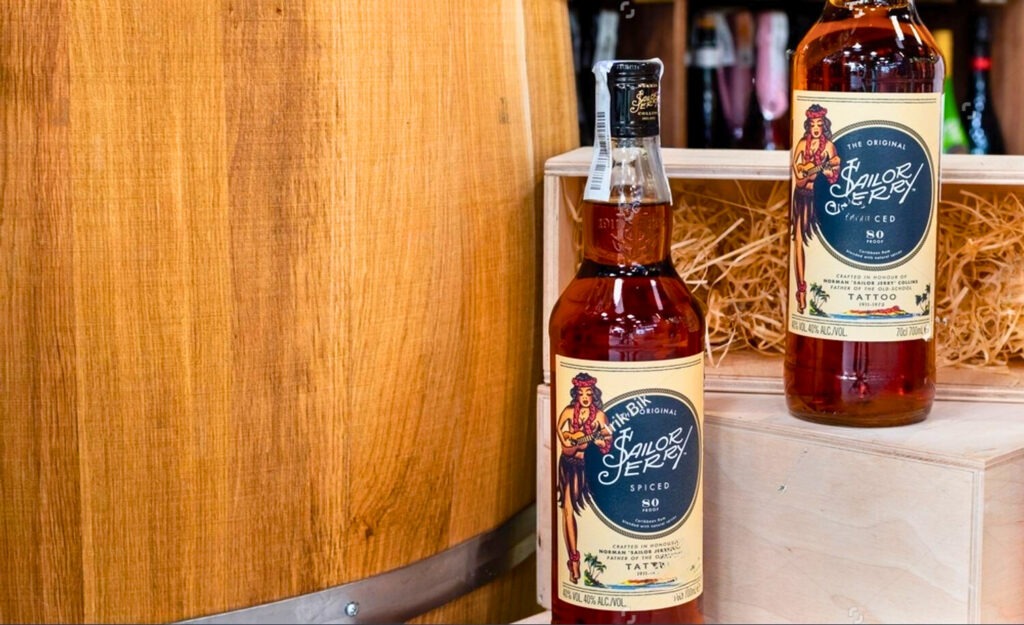
Rum-producing regions
The Caribbean is famous for its production of sugarcane-based spirits, with each island bringing its own manufacturing methods, traditions and taste specificities. In this section, we explore seven emblematic islands of the region, each known for its unique contributions to the world of this beverage.
Guadeloupe
Guadeloupe is renowned for its agricultural products, made from fresh cane juice. The island’s distilleries, such as Damoiseau and Bielle, are renowned for their craftsmanship. Guadeloupean spirits are often appreciated for their freshness and floral aromas, while the amber and barrel-aged varieties develop more complex flavors. The culture surrounding this drink is deeply rooted in Guadeloupean daily life, with festivals celebrating sugar cane.
Saint Lucia
Saint Lucia is another Caribbean island famous for its production. The island’s spirits are distinguished by their sweetness and fruity nuances. The Chairman’s Reserve distillery, for example, produces high-quality elixirs that are much appreciated by connoisseurs. Saint Lucia’s products are also renowned for their ageing methods, using oak casks that have contained bourbon and other spirits, giving them distinctive aromas.
Martinique
Martinique is often considered the cradle of agricultural elixirs, made from fresh sugar cane. Producers such as Rhum Clément and Rhum JM are world-renowned for their quality. Martinique’s beverages are protected by an appellation d’origine contrôlée (AOC), guaranteeing that they are produced using traditional methods. The island’s spirits are distinguished by their pure taste and aromas of tropical fruits, spices and flowers.
Trinidad and Tobago
Trinidad and Tobago are renowned for their molasses spirits, which are distinguished by their richness and body. The Angostura distillery, famous for its products, offers a varied range from light to full-bodied. Trinidad drinks are often used in classic cocktails, but can also be enjoyed neat to fully appreciate their complexity. Their international reputation is the result of a well-established sweetness and character.
Barbados
Barbados is often considered the cradle of this beverage. The island’s products are renowned for their exceptional quality and diversity. Iconic brands such as Mount Gay and Cockspur produce elixirs exported worldwide. Barbadian creations range from light to robust, with notes of caramel, vanilla and spice. The island has a long tradition of production and is home to several distilleries that continue this heritage.
Anguilla
Anguilla, although less well-known than some of its neighbors, also produces quality spirits. The small island prioritizes artisanal production and quality. Distilleries like Anguilla Rum Company focus on traditional production methods, creating elixirs rich in flavor. Anguilla’s products are often perceived as a hidden treasure, offering a unique experience to connoisseurs.
The cultural impact of rum
Rum and Caribbean identity
It is deeply rooted in Caribbean culture. It is often associated with festivals, rituals and local traditions. For example, the Sugar Cane Festival, celebrated on several islands, is an opportunity to pay tribute to this culture. It is also present in the region’s music, dance and culinary arts, reinforcing its status as an emblematic drink.
Rum in gastronomy
It is a key ingredient in Caribbean gastronomy. It is used in many cocktails, but also in traditional dishes. For example, it is often used to marinate meats or in desserts such as cake. Caribbean cuisine, rich in flavors and colors, is usually served over a glass of good wine.
The importance of tradition
The traditions surrounding this beverage are also very much alive in the Caribbean. Family distilleries, often handed down from generation to generation, perpetuate ancestral know-how. These traditions are celebrated at festivals and events, where visitors can taste local rums and learn more about their production.
Challenges facing the rum industry
Environment and sustainability
The rum industry faces environmental challenges, including deforestation and excessive pesticide use. More and more producers are adopting sustainable practices to preserve the environment while continuing to produce quality rum. Organic farming, forest replanting and the use of environmentally-friendly growing methods are just some of the initiatives emerging in the industry.
Economy and market
The rum market has grown significantly in recent years, with increased demand for artisanal and organic rums. Producers are striving to meet this demand while maintaining the quality and authenticity of their product. Current trends show a growing interest in aged rums, prompting many distillers to invest in ageing casks.
Global competition
As rum grows in popularity, competition on the global market is increasingly fierce. Caribbean producers need to stand out not only for the quality of their product, but also for their history and heritage. This often involves marketing strategies that focus on authenticity and terroir.
The journey from sugar cane to rum is a testament to the history and culture of the Caribbean. As a symbol of a rich heritage, it continues to play a central role in the identity of the Caribbean islands. Whether in a glass or a dish, rum is much more than just a drink; it’s a true reflection of the Caribbean soul. By preserving their know-how and adopting sustainable practices, Caribbean rum producers ensure that this tradition endures for generations to come.

